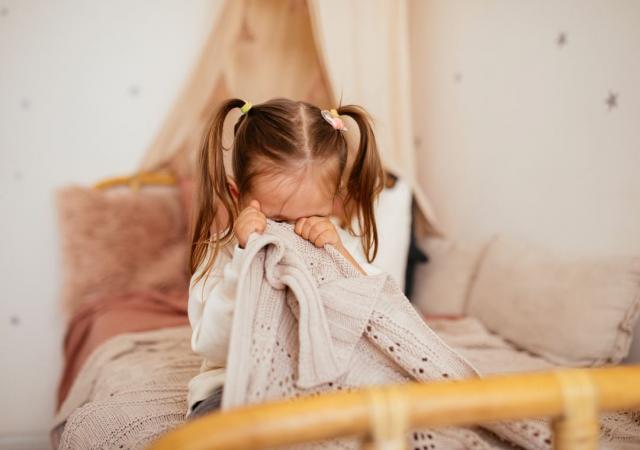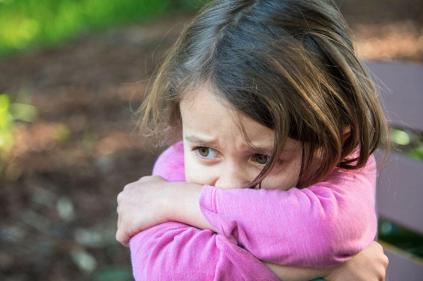Night time can be so triggering for children for many reasons; we are asking them to separate from the protection and comfort of their caregiver for up to 10-12 hours….and to do so in the dark! From an evolutionary perspective, the darkness means that we cannot see our predators and so it is instinctively a scary time for us humans. To add to this, a child’s imagination is developing at a speedy rate (this starts at approximately age 2-3years) and young children can struggle to differentiate between what is real and what is imagined.
Furthermore, a child’s body slows down at night time; there are fewer distractions and activities stop, and so they may start to recall events from the day that bothered them and want to talk about them with you. Lastly, they are tired and so their emotion brain (amygdala) is more easily destabilised when we are tired and so we are more likely to think irrationally.
When you put all of these factors together, it is no wonder that children can become more anxious at bedtime. Here are some ideas that can help you to help child with their night time worries:
Normalise: explain to your child why they might be feeling afraid at night-time by using some of the reasons outlined above. This helps your child to understand these worries a bit better and validates their experience.
Imagination: try to show your child the difference between their imagination and reality. You can do this by playing the ‘let’s imagine’ game. Ask them to close their eyes and imagine the most delicious ice-cream ever and get them to describe it. Then ask them to open their eyes and to point out where the ice-cream is. You can then explain to them that they saw it in their imagination, just like the monsters that they think about at night.
Accept and reassure: while it can be tempting to dismiss your child’s irrational fears, this just results in them feeling more alone with their fear and the feeling can get worse. It is far more helpful to say “wow, that is a scary thought” than to say “don’t be silly, there are no witches in here”. You can then offer some reassurance and comfort by saying something like, “monsters are not real. You are safe and mummy is always close by at night time”. You can them soothe them physically by rubbing their head or back or offering a comfort toy. You could also use a bed time prayer or song or mantra if you use one.
Become a fear detective: Look out for some of the possible sources or triggers for the fear and see if these can be managed. These might include, for example, items in the room that are creating shadows on the walls or ceiling; noises in the house at night that could be managed; new lessons that are happening in school about natural disasters or other threatening topics; the content of the films, cartoons or Youtube clips that they are watching during the day; changes in routine that can contribute to the child’s feeling of uncertainty.
Some final suggestions:
It always helps to create a calming bedtime routine that is focused on connection through activities such as reading, talking together, brushing hair, picking out clothes for the next day. It can help to add in some humour or playfulness to lighten the mood and reduce the likelihood of anxious feelings. It can also help to play music or a story (Toni Box or Alexa) at night time so that your child can focus on listening to this as a distraction from their worry thoughts.
Finally, it is so important as a parent to try to remain as calm as possible during this difficult phase. The calmer you feel, the easier it is to coregulate with your child, and the sooner they will feel calm too. You may need to ‘re-set’ your nervous system ahead of bedtime in order to achieve this by going out for a walk, taking a quick shower or doing some deep breathing.
Dr. Rebecca Quin
Chartered Senior Clinical Psychologist
Dr. Rebecca Quin is a chartered senior clinical psychologist & director of the Psychology Practice, Bray which she founded in early 2022. The practice caters for children and adolescents who are experiencing mental health difficulties.
She has 15 years experience working with younger people & their parents within primary care, disability and acute mental health settings. She has also worked in the area of neuropsychology in King’s College Hospital and the Maudsley hospital, London as well as Beaumont hospital in Dublin, Ireland.
Rebecca’s areas of special interest include childhood anxiety, autism and the relationship between physical activity and mental health. She is currently delivering online and in person workshops for parents and schools on these topics. She also carries out a wide range of assessments for children and teens.







